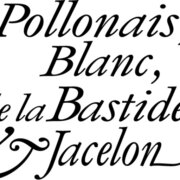Best Art & Cultural Property Law Lawyers in Port of Spain
Share your needs with us, get contacted by law firms.
Free. Takes 2 min.
List of the best lawyers in Port of Spain, Trinidad and Tobago
About Art & Cultural Property Law in Port of Spain, Trinidad and Tobago
Art & Cultural Property Law in Port of Spain, Trinidad and Tobago, is a specialized area of law that deals with the creation, protection, distribution, and preservation of art and cultural property. This branch of law is essential in preserving the nation's rich cultural heritage and ensuring the rights of artists, collectors, and institutions are protected. It encompasses issues related to intellectual property rights, heritage conservation, patrimony laws, and regulations concerning the import and export of cultural goods.
Why You May Need a Lawyer
There are several reasons why individuals may seek legal assistance in Art & Cultural Property Law. These can include situations such as:
- Disputes regarding the ownership or authorship of artworks or cultural artifacts.
- Compliance with regulations concerning the sale and transfer of art and cultural items.
- Protection of intellectual property rights for artists and creators.
- Claims of repatriation of cultural property to rightful owners or countries of origin.
- Navigating legal requirements for importing or exporting cultural goods.
- Advising cultural institutions on legal matters related to curation, exhibition, and loan agreements.
Local Laws Overview
The legal framework governing art and cultural property in Port of Spain is shaped by both local and international laws. Key aspects of these laws include:
- The National Trust of Trinidad and Tobago Act, which establishes a regulatory body to protect and preserve national heritage.
- Intellectual Property laws, including copyright and trademark laws to protect the rights of artists and creators.
- The Custom Act and regulations around the import and export of cultural goods.
- International agreements like the UNESCO Convention on the Means of Prohibiting and Preventing the Illicit Import, Export, and Transfer of Ownership of Cultural Property, to which Trinidad and Tobago is a signatory.
Frequently Asked Questions
What is considered cultural property under Trinidad and Tobago law?
Cultural property typically includes artifacts, artworks, historical documents, and objects of historical, artistic, or archaeological significance.
Do I need a license to sell art in Trinidad and Tobago?
While local sales of art usually do not require a license, exporting art may require compliance with customs regulations and, in some cases, permits, especially for cultural heritage items.
How do copyright laws affect my artwork?
Copyright laws protect an artist's exclusive rights to their original works, allowing them to control the reproduction, distribution, and display of their art.
Can cultural artifacts be legally exported?
Exporting cultural artifacts may require permits, especially if they are considered national heritage items. This is to ensure the preservation of the country's cultural heritage.
What steps should I take if I inherit art or artifacts?
Inheriting artworks or artifacts may involve considerations of ownership rights, appraisals, and compliance with any relevant cultural property laws.
What should I do if I find cultural artifacts on my property?
It is advised to contact local authorities or the National Trust of Trinidad and Tobago, as there may be significant legal considerations and reporting obligations regarding discovered artifacts.
How can artists protect their rights in Trinidad and Tobago?
Artists can protect their rights by registering their works with the Intellectual Property Office and seeking legal advice for more comprehensive protection strategies.
What are the consequences of illegally exporting art?
Illegal export of art can result in penalties including fines, confiscation of the works, and legal action as per customs and cultural heritage laws.
Is there legal support for preserving cultural sites?
Yes, there are laws and organizations dedicated to the preservation of cultural sites, including the National Trust, which oversees and enforces regulations to protect these sites.
What is the role of the UNESCO Convention in Trinidad and Tobago?
The UNESCO Convention aids in preventing the illicit transfer of cultural property, reinforcing international cooperation in protecting cultural heritage that Trinidad and Tobago adheres to.
Additional Resources
For further assistance and information, you may consult the following resources:
- The National Trust of Trinidad and Tobago - responsible for preserving cultural heritage.
- The Intellectual Property Office - for copyright and trademark registrations.
- The Ministry of Community Development, Culture and the Arts - involved in cultural property regulation.
- The Trinidad and Tobago Society of Artists - offers support and information for local artists.
Next Steps
If you believe you need legal assistance in Art & Cultural Property Law, consider following these steps:
- Identify the specific area of legal concern, such as ownership disputes or export regulations.
- Consult with a lawyer specialized in Art & Cultural Property Law for tailored legal guidance.
- Prepare any relevant documents and evidence to support your case or inquiry.
- Contact local authorities or relevant organizations if the matter concerns public heritage or cultural sites.
By understanding these elements and seeking appropriate advice, you can navigate the complex field of Art & Cultural Property Law in Port of Spain with greater confidence.
Lawzana helps you find the best lawyers and law firms in Port of Spain through a curated and pre-screened list of qualified legal professionals. Our platform offers rankings and detailed profiles of attorneys and law firms, allowing you to compare based on practice areas, including Art & Cultural Property Law, experience, and client feedback.
Each profile includes a description of the firm's areas of practice, client reviews, team members and partners, year of establishment, spoken languages, office locations, contact information, social media presence, and any published articles or resources. Most firms on our platform speak English and are experienced in both local and international legal matters.
Get a quote from top-rated law firms in Port of Spain, Trinidad and Tobago — quickly, securely, and without unnecessary hassle.
Disclaimer:
The information provided on this page is for general informational purposes only and does not constitute legal advice. While we strive to ensure the accuracy and relevance of the content, legal information may change over time, and interpretations of the law can vary. You should always consult with a qualified legal professional for advice specific to your situation.
We disclaim all liability for actions taken or not taken based on the content of this page. If you believe any information is incorrect or outdated, please contact us, and we will review and update it where appropriate.











